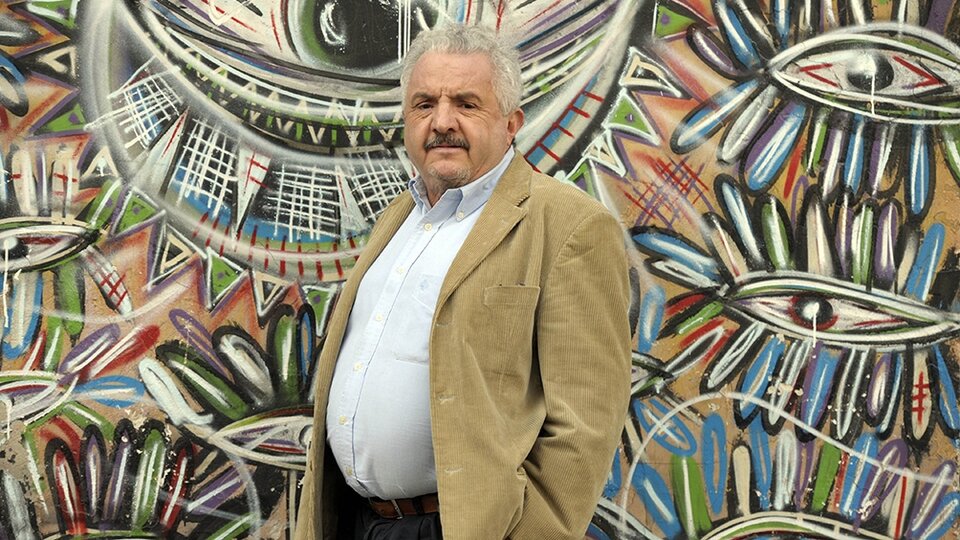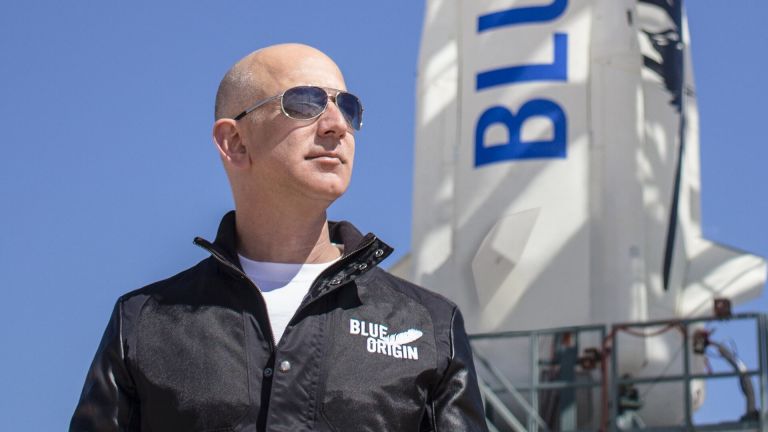If there are unanimous concepts that stand out when speaking with filmmakers who knew David “Coco” Blaustein closely, it is his generosity, his solidarity and his unstoppable engine to generate networks and projects. Of course, also his political commitment. And putting the body in the main events in Argentina, many of which he lived with a camera on his shoulder. An essential is leaving, but his films remain and especially his view on the importance of politics in cinema and also in life. Page 12 He interviewed five filmmakers who dealt with him and whom he scored thoroughly in different ways.
* Nemesio Juárez
“We had a very frequent relationship with Coco. We could say a friendship of militancy because I did not know him before, but he hardly returned from his exile in Mexico. We share many things, especially the fight and defense for Argentine cinema. We participate. in various events, such as the Front that was made in defense of the national cinema. Later, there was a very close collaboration when he made Utopia hunters, where I handed him some material that I had and that I had preserved from the time of the dictatorship, especially a documentary that the JP had made for the Cámpora campaign in ’73. Later, Coco had the idea of making a movie about my brother, Quique (N. de la R .: filmmaker and militant disappeared by the last dictatorship). It was called rebel fragments And it was one of his most moving films because he really found a structure that strengthened both my brother’s militancy and his own militant commitment. Coco has been one of the most active, has recorded many events in the same moments in which they occurred. His position with respect to the media, the militancy that was returning … At every moment he was recording almost the immediacy of events. So much so that in recent times we were on the street: I was filming in the recent period of resistance against Macri, and we met with Coco because he was also recording those moments that I think are the ones that came together in his last film that unfortunately I still did not see it: It’s going to end. Coco had a very happy trajectory in the conduction of the Museum of Cinema. He has been a permanently active man. That fundamentally characterizes him: a commitment and an immediacy to take the heat of events and try to reflect and communicate them. He left a notable figure throughout this era of the recovery of democracy, at a time when postmodernism had also prevailed in the field of culture. Coco and a few more of us thought that culture was something else, it was not the content-empty postmodernism of the first era of democracy, where it was not possible to talk about what had happened to our generations and where we had an active participation. And many of the most beloved were those who fell into that circumstance. There was a void where you could not talk about that experience, the bridges were broken between the new generations. And those years were the deepening of a rift between the new generations and those of us who had participated in that frustrated emancipatory stage. Later, those bridges had to be rebuilt and Coco was one of the first with Utopia hunters who tried to transmit that experience to the new generations “.
* Carmen Guarini
“We always had a lot of professional contact and also because he was affectionately a super lovable guy, he was always supportive, partner. We were active together in DocuDAC. I knew him since the ’80s when we fought and worked together for political cinema and documentaries. At that time. Coco was a guy who was in all the fights, in all the fights, putting the camera, putting the body on. That cost him precisely because he put the body on. He is a great example, he was a tender man. All the great fights that we had in this country had him filming: the media law, the issue of soy, also the political struggle of the ’70s. He also worked for the School of Cuba. In short, he was a guy who was in many fronts, very committed, a commitment that led him into his life and that ultimately these things cost you your life because the body charges you. For me his work was very important. Although I did not work in the same direction, because I worked in another terr I’m from the field of human rights, but what I was doing seemed very important and necessary to me. And the truth is that they were works that today have a very important historical value. In addition, there is what he has done with others because let’s not forget that Coco was also a producer, he supported other works. He was always there among the young people pushing. He was a guy that if you called him and you needed something, he was there. ”
* Andrés Habegger
“Coco gathers aspects from the personal and from the political that intersect, are intricate and that are very important. I was studying Communication Sciences, I saw Utopia hunters and, from that moment on, I began to think about the possibility of studying cinema. I thought about the possibility of bringing together two things that for me have a lot to do with my story and that also have to do with Coco’s story: the personal and the political. I studied cinema. My first two feature films, (H) Everyday stories (2000) and When the saints come marching (2004), are Coco productions. He was a political character who made movies. I like to say that Coco was someone with an extremely interesting political look. And he had that in all his activities: in his cinematographic activity, in production, in his political activity. He was someone who marked us a whole generation. Many of the companions of the ADN association are, in part, like children of Coco. Or children of a generation that Coco stimulated a lot. Apart from being someone who thought politically and who transferred that political thought to the cinema, Coco was a great stimulator. He was a kind of technical director of political cinema. One of those guys who is on the court and looks at the panorama. It is a huge loss, because he was someone who knew how to set up many networks and was very generous in that sense. He began to build movie families, to build political families. Those crosses of discipline, origins, ways of seeing were of an enormous capacity for Coco. And apart he had a look at the cinema as a cultural asset. He looked at the cinema both as a work, but also as a cultural asset, as a political asset of a country. ”
* Alejandro Fernández Mouján
“I did the photography and the camera Hunters of utopias, in 1994 and 1995. There a friendship was born. And at the time, that movie was politically important. In addition, it was the time of the first contest that the Incaa opened for documentaries. It was very important for many reasons. There was Nerio Barberis, who was also exiled in Mexico and lives there. Nerio made the sound. I contributed a couple of contacts to Coco that appear in the documentary. It was a very interesting job and it was when I got to know him the most. From there, we had a pretty close relationship. Although we did not do other work together, we were always in contact. The last time I was with him it was because his latest movie was available, It’s going to end, that of the resistance of the workers during the dictatorship in the factories, which I saw when he sent it to me and which follows a bit the line of Utopia hunters. For me, he followed a line in a documentary style, he was very consistent with it and he dealt with issues that had a lot to do with politics, with human rights. I remember Spoils of war, for instance. Coco was always a very active guy in politics, cinema, always a very companion, very generous. I know it helped a lot of people to start making their first documentary. Here in Argentina he is one of the important names in political documentary, especially from post-dictatorship reflection here. All his themes had something to do with it. This news makes me very sad. ”
* Andrés Cedrón
“I cannot believe the sudden loss of Coco. I have lost a friend and co-worker for more than ten years. He was the person who marked me in my career, who helped me from the beginning with my documentary The Caracas, and with whom we co-direct It’s going to end, his last movie. As a person he cared and took care of my state of health in the most difficult moment that I had to go through. All this time we have built a great creative and loving relationship, sharing our projects almost daily. He instilled in me a love and enjoyment of cinema, and a political commitment to the past, present and future of our country. It was and will be a benchmark in documentary cinema. I met him through Alquimia Peña, director of the Foundation for New Latin American Cinema (FNCL). In 2009 I traveled to Cuba while finishing the montage of The Caracas and it was she who told me that to finish the film in the best way I had to see David “Coco” Blaustein. During my visit to the Foundation, I saw a photo of Coco with Fidel and García Márquez as a symbol of all their contribution and their commitment to Latin American cinema. Upon returning, it was a great joy to have your support, your opinion and your constructive criticism. And our hug at the premiere at the Gaumont Cinema was unforgettable. From there we continue to work together to this day. We decided to make the documentary It’s going to end in the midst of macrismo, as a fact of cultural resistance. We had the need to count the resistance of the workers at a time when we saw that the neoliberal economic and political measures of the civic-military dictatorship were being repeated. In the documentary we exercised an ideological breadth and a class identity that were a reflection of their thinking. In his work he was passionate about cinema. He watched movies almost daily, hosted his radio show The Crank with interviews with personalities of cinema and culture and produced or directed films that marked the popular field. His legacy is the importance of documentary to exercise memory, truth and justice. I will always be grateful for your generosity and for your love for me. ”
To read more on this topic:
– .


